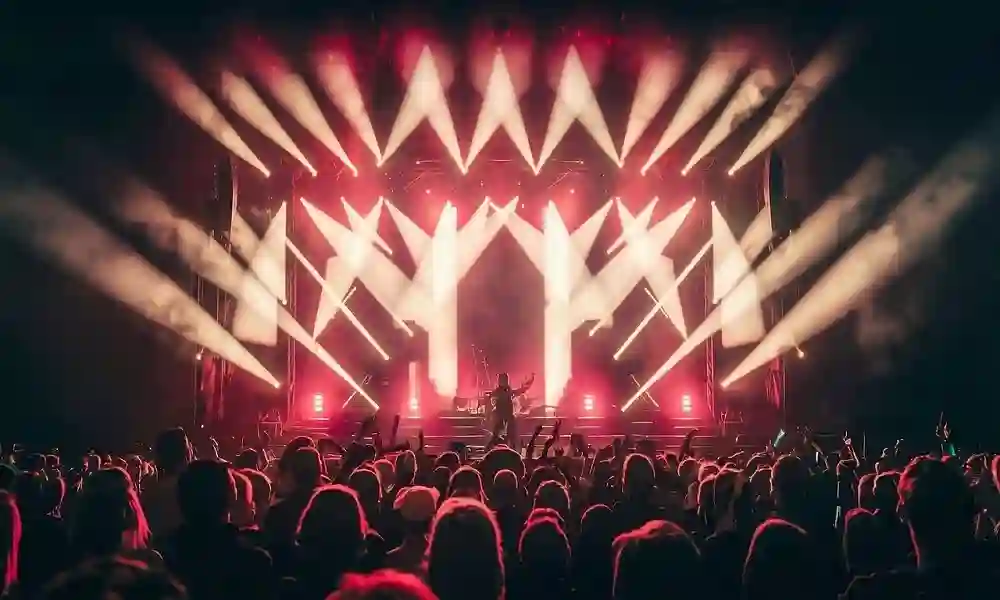The Future of Music: Virtual Concerts and More

Alright, let’s talk about the future of music. This whole concept might sound like something straight out of a sci-fi novel, but it’s happening, people. We’re in the midst of a total revolution when it comes to how we create, experience, and even think about music. From virtual concerts that let us attend a show in Tokyo while lounging in our pajamas to AI composing music that actually slaps (yeah, really), there’s a whole new world of sound unfolding before our ears.
So, buckle up. The future is here, and it’s… wild.
The Virtual Concert Revolution: Not Just a Pandemic Phase
I’ll be honest: when virtual concerts first became a thing, I thought, “Sure, this is just a temporary fix, right? We’ll be back to the sweaty mosh pits soon enough.” But nope, the future of music has got other plans. It’s more than just a digital workaround. Virtual concerts have flipped the script on what a “live show” even means.
First, let’s break down the basics of these virtual shows. We’re talking livestreams on platforms like YouTube or Twitch, where fans can watch a performance in real-time from their couches. But, it doesn’t stop there. VR (that’s virtual reality for you, noobs) is bringing a whole new level of immersion—imagine attending a concert in a 3D, holographic-style setting. Honestly, it’s like stepping into a different universe.
- Live Streaming: The bread and butter of virtual concerts. Artists play in real time, and fans tune in from all over the world. Pretty cool, right?
- Virtual Reality Concerts: If you’re lucky enough to own a VR headset, you can experience performances as though you’re physically there—without the sweaty crowd.
- Augmented Reality (AR): This one’s a bit of a mind-bender. AR concerts blend digital effects with the real world. You could be standing on your front porch watching a holographic performer serenade you. Don’t act like you wouldn’t want that.
I’ll admit, the first time I tuned in to one of these shows, I was skeptical. It’s not the same as feeling the bass vibrate through your chest. But guess what? I was wrong. These virtual concerts are so much more than just a screen. They’re an entirely new way of experiencing music—and they’re here to stay.
Why We’re Here For It
Here’s the kicker: virtual concerts have some serious upsides.
- Global Access: My cousin in Chicago can now attend a concert in Australia without even changing out of her sweatpants. Heck, she doesn’t even need to change out of her bed. (I’m jealous, TBH.)
- More Money for Artists: This isn’t just about convenience for fans. Artists are cashing in on new revenue streams—from digital tips to virtual merch sales.
- Exclusive Content: Virtual shows often have special perks that you don’t get at physical gigs, like behind-the-scenes footage or even virtual meet-and-greets. Talk about VIP access.
- Zero FOMO: No more “I can’t make it to the show because it’s sold out” excuses. You can basically attend every concert now.
Virtual concerts aren’t just some fleeting trend. They’re shaping the future of music by breaking down walls—both literal and figurative.
AI: The Musical Genius You Never Saw Coming
Oh, and AI is here to spice things up in the music world too. Yep, artificial intelligence. No, I’m not talking about the robot band that’ll inevitably take over the world (although, fingers crossed, I guess?). I’m talking about how AI is making waves in music composition, sound engineering, and even creating playlists that feel like they get you.
Let me tell you: the first time I heard an AI-generated track, I thought, “Okay, but this sounds like something from an algorithm that’s never seen a guitar.” But it turns out, AI can actually compose some sick tunes.
- AI-Generated Music: These algorithms can spit out full tracks in any genre, based on what they’ve learned from thousands of songs. It’s like having a personal composer who never sleeps.
- Collabs with Human Artists: Some musicians are teaming up with AI to brainstorm new ideas—almost like having a bandmate who’s super good at math and knows a lot about jazz.
Now, I get it. You’re probably thinking, “Wait, is music made by robots even… music?” Trust me, it’s better than you think. These AI compositions are starting to show up in video game soundtracks and even some mainstream albums. I’m not saying AI is replacing human artists (far from it), but it’s definitely got a place in the future of music.
Personalized Playlists: Music That Gets You
I’ll admit it—sometimes, I’m that person who spends more time scrolling through playlists than actually listening to the music. But AI? It’s here to save me from my eternal indecisiveness. Streaming services use AI to tailor music recommendations to my mood, my time of day, and even the weather (okay, maybe not the weather—yet). But you get the point.
- Advanced Algorithms: Spotify, Apple Music, and the like know what you’re into. They really know. Sometimes, it’s a little creepy, but hey, I’ll take it.
- Mood-Based Music: Here’s an idea: AI could eventually create music that matches your current emotional state. You’re sad? Prepare for an emotional ballad. You’re hyped? Expect a high-energy anthem. Heck, maybe it’ll even figure out what you need.
In the future of music, AI isn’t just about creating new songs—it’s about curating the perfect soundtrack to your life.
VR and AR: The Future Is In Your Living Room
Hold up. We’re not done yet. VR and AR are here to reshape how we experience music in a whole new way. You know how virtual concerts have taken off? That’s only scratching the surface. These immersive technologies are changing how we interact with music—and it’s gonna get wicked cool.
VR Concerts: Not Just for Gamers
Okay, so I’ve already mentioned virtual concerts, but let’s dive a little deeper. Imagine being at a concert in the middle of a huge, glowing digital arena where you’re not just watching—you’re in it. VR makes this possible. With a headset, you’re not just a spectator; you’re a part of the performance. You can look around, interact, and feel like you’re right there in the middle of the action.
- Immersive Environments: Picture this: you’re in an 80s-style synthwave concert, surrounded by neon lights and lasers. Sounds cool, right?
- Multi-Sensory: If VR tech keeps advancing, we might even start feeling the music through vibrations or tactile feedback. How wild is that?
AR: Bringing Concerts to Your Backyard
Not into VR? No worries. Augmented reality (AR) is bringing digital elements to our physical world. AR could take a live concert and throw in some digital magic—say, holographic fireworks or a dancing virtual backup dancer right in front of you.
- Interactive Experiences: Imagine using your phone to interact with a live performance. Maybe you choose the setlist or control the lighting. It’s all possible with AR.
- A New Kind of Concert: Artists could perform in your living room—digitally, of course. I’m talking about holograms that would make Star Wars jealous.
The future of music isn’t just about listening—it’s about experiencing music in ways we’ve never dreamed of.
Blockchain: A Fairer Way to Pay Artists
Okay, let’s get into the nitty-gritty. The music industry has always had its issues with fair artist compensation. Enter blockchain technology. This is the tech behind Bitcoin and cryptocurrencies, but it’s also got huge potential for the music world.
A Transparent System for Royalty Payments
In a perfect world, artists would get paid fairly for every stream, download, or concert ticket sold. Blockchain makes this possible. With its decentralized nature, blockchain ensures that artists receive royalties directly without the need for middlemen—no more confusion about where the money goes.
- No More Middlemen: Blockchain cuts out all the confusing layers of labels and distributors, giving artists a more direct link to their income.
- Smart Contracts: These are basically digital agreements that automatically execute when certain conditions are met. For musicians, that could mean fair and instant payments every time a song is played.
This is one of the coolest ways the future of music could level the playing field for artists, big and small.
Wrapping It Up: The Music World of Tomorrow
Alright, I’ve rambled enough. But here’s the deal: the future of music is looking brighter than ever. Virtual concerts are changing the game for live performances. AI is opening up new ways to compose and consume music. VR and AR are giving us immersive experiences that we could only dream about before. And blockchain could finally make sure artists get what they’re owed.
Is it weird? Sure. But it’s also the future, and I’m here for it.
Music’s always been about breaking boundaries, and now, it’s doing just that in ways we never thought possible. Whether you’re jamming to a hologram, listening to an AI-created song, or attending a concert from your couch in another continent—this is just the beginning. Get ready for a whole new era of music. It’s gonna be a wild ride.






